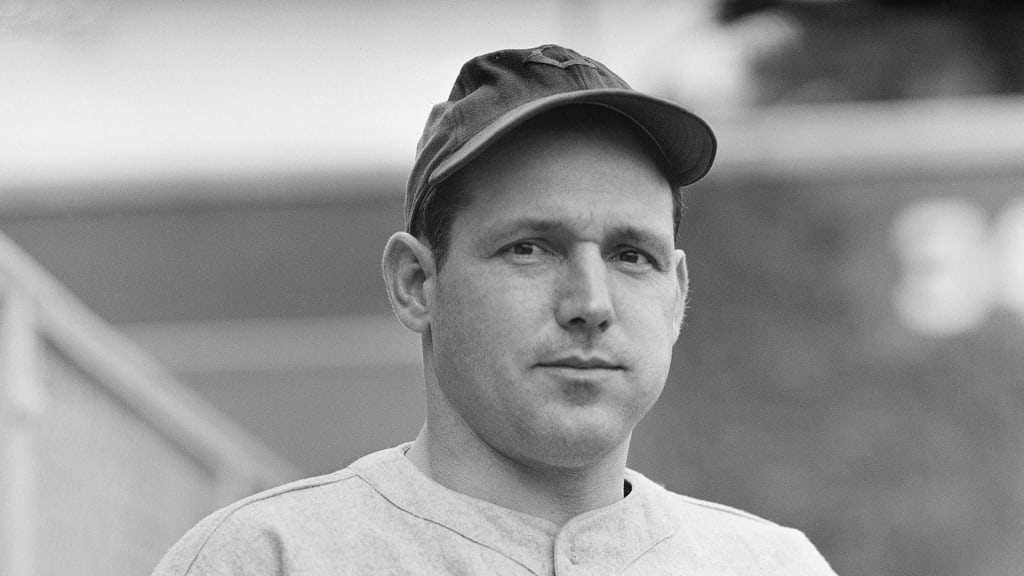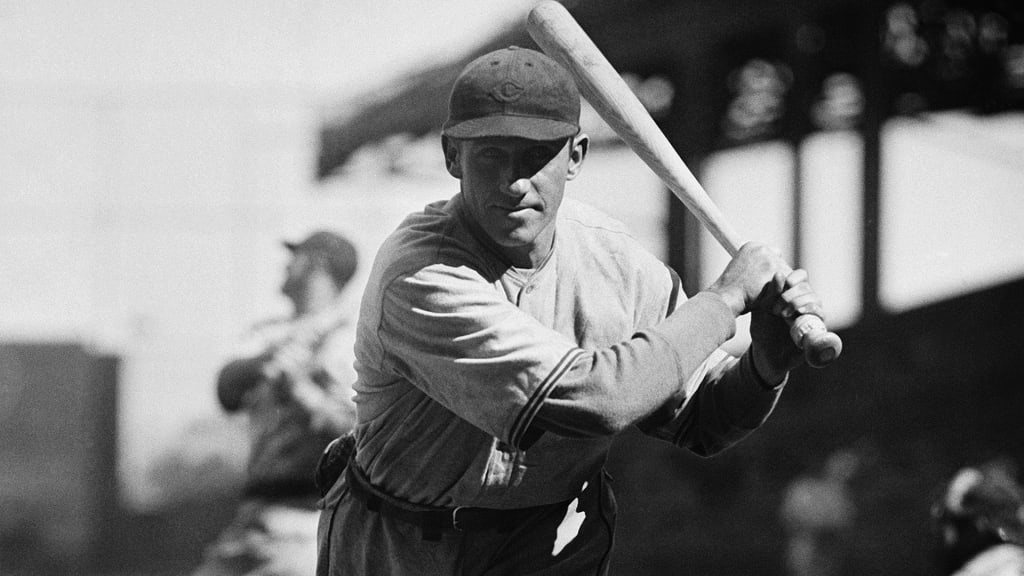No one loves a good debate quite like baseball fans, and with that in mind, we asked each of our beat reporters to rank the top five players by position in the history of their franchise, based on their career while playing for that club. These rankings are for fun and debate purposes only … Here is Jordan Bastian's ranking of the top five right fielders in Cubs history.
Here is Jordan Bastian's ranking of the top five right fielders in Cubs history.
1. Sammy Sosa, 1992-2004
Key fact: Only player in MLB history to hit 60-plus homers in three seasons.
There is no denying the statistics that Sosa compiled during his 13-year run with the Cubs. It is the question of how the right fielder went about compiling those numbers that remains a hot-button topic among baseball fans.
Even with that said, denying Sosa the top slot here just would not feel right, given his place in Cubs history. Sosa is Chicago's all-time home run king (545 out of 609 in his career) and he captivated the nation, alongside Mark McGwire, during the 1998 pursuit of Roger Maris' previous single-season record of 61 homers.
In 2025, the Cubs welcomed Sosa back to Wrigley Field, honoring him with a place in the team's Hall of Fame.
Sosa was must-see TV during the late '90s for the Cubs. From '98-01, he averaged 61 homers and 149 RBIs with a .310 average and 1.058 OPS. In '98, when he took home the National League MVP Award, he finished with 66 homers (second to McGwire's 70), drove in 158 runs and hit .308 (1.024 OPS).
Prior to the '92 season, the Cubs acquired Sosa from the crosstown-rival White Sox (along with Ken Patterson) in exchange for veteran slugger George Bell.
By the time his time on the North Side was done, Sosa had made seven All-Star teams, won six Silver Slugger Awards and amassed 1,414 RBIs (third in Cubs history), 873 extra-base hits (third), 3,980 total bases (fourth), 1,245 runs (sixth) and 58.8 WAR (sixth). His .569 slugging percentage and .927 OPS with the Cubs each rank second in franchise history. Sosa's rate of one homer per 12.8 at-bats ranks first in team history.
“The way that I played here, I played hard every day,” Sosa said in '25. “I came here to play hard. And the good thing is, I won the crowd. The crowd pretty much was on my side, thank God. But I made them very happy, so I guess the love that I gave them before, they give it back to me now. I'm very happy for that.”
2. Andre Dawson, 1987-92
Key fact: 172 homers as a right fielder rank second to Sosa in Cubs history.
You know, fan sentiment has to count for something in these lists. It can't all be about who had the most WAR or the best stats over a long career in a Cubs uniform. With that in mind, the beloved Dawson rises to the second slot after Sosa, who took over in right field after Dawson's departure.
One reason Dawson remains so highly regarded in the eyes of Cubs fans -- beyond the awards and production -- is the story of how he wound up in Chicago in the first place.
Prior to the 1987 season, Dawson was growing frustrated with free agency and wanted to get off the artificial turf in Montreal. He considered a couple of clubs, but ultimately offered the Cubs a blank contract. Pitcher Rick Sutcliffe also offered to pay $100,000 out of his own salary to bring the Hawk to the North Side.
"Chicago was at the top of the list because I just enjoyed Wrigley Field, the atmosphere and all," Dawson told Muskat for her book. "I wanted to go there first because I wanted to get a feel for how receptive management was going to be with the kind of proposal we had."
It was an opportunity for the Cubs to add a future Hall of Famer to the fold on a bargain deal, which wound up being a base salary of $500,000. And what did Dawson do in '87? He hit .287 with an .896 OPS, while leading the Majors in both homers (49) and RBIs (137). He won the NL MVP, was an All-Star and picked up a Gold Glove and Silver Slugger Award.
In his Cubs career, Dawson cemented his place in the Hall of Fame by making five All-Star teams and picking up two of his eight career Gold Gloves. Over six years with Chicago, he hit .285 with 174 home runs, 149 doubles, 587 RBIs and an .834 OPS. He compiled 18.7 of his 64.8 career WAR while suited up for the Cubs.
3. Bill Nicholson, 1939-48
Key fact: 1,010 games in right field second only to Sosa for Cubs since 1904.
For eight seasons, beginning in 1940 and ending with '47, Nicholson either led or shared the lead for home runs for the Cubs. That was a club-record streak that stood until franchise legend Ernie Banks equaled it across the '50s and '60s, and then Sosa bested it with an 11-year run between the '90s and '00s.
For most of the '40s, Nicholson was not only a consistent slugger, but a fan favorite.
"'Nick' was one of the neatest guys you ever wanted to meet," teammate Don Johnson said in Peter Golenbock's book, "Wrigleyville". "He was a real good outfielder, covered more territory than you thought."
For a decade with the Cubs, Nicholson hit .272/.368/.471 with 205 homers, 245 doubles, 833 RBIs, more walks (696) than strikeouts (684) and 38.1 WAR. He collected eight RBIs in seven games in the 1945 World Series and made four All-Star teams.
Across the '43-44 campaigns, in which he finished in the top three in NL MVP voting each year, Nicholson hit a combined .298 (.926 OPS) with an average of 31 homers, 33 doubles, 82 walks, 106 runs and 125 RBIs per season.

4. Kiki Cuyler, 1928-35
Key fact: More WAR with Cubs (25.9) than Pirates (17.9) in career.
A bitter exit from Pittsburgh, where Cuyler rose to stardom, opened the door for the Cubs to land a future Hall of Famer via trade in the midst of his prime years. Over eight years with Chicago, Cuyler played in two World Series, slashed .325/.391/.485 and piled up 79 homers, 220 doubles, 66 triples, 161 steals and 665 runs scored. He ranks sixth in Cubs history in average, ninth in on-base percentage and eighth in OPS (.876).
In 1925, Cuyler was runner-up for the MVP after hitting .352 with 18 homers, 43 doubles, 26 triples, 102 RBIs and an MLB-high 144 runs scored. Cuyler had 155 runs and 228 hits in 1930, which each fell one short of tying Rogers Hornsby's single-season club records in those categories (set one year earlier in '29). They rank 1-2 for those single-season marks to this day in Cubs history.

5. Frank Schulte, 1904-16
Key fact: Played in four World Series with Chicago.
Rounding out the top five is Schulte, who is credited with 21.9 WAR in his years with the North Siders. He was a part of the 1907-08 back-to-back World Series champion clubs and took home the Chalmers Award (before the NL MVP existed) in 1911. That year, Schulte hit .300/.384/.534 with 21 homers, 30 doubles, 21 triples, 107 RBIs and 105 runs in 154 games. In 13 years with the franchise, he amassed 1,590 hits with a 116 OPS+ (16 percent above league average).
Honorable mentions
While Jason Heyward (2016-22) did not crack the top five, he will forever be a part of Cubs lore for his speech during the rain delay late in Game 7 of the '16 World Series. ... Jose Cardenal (Pearl Jam singer Eddie Vedder's favorite player) compiled 9.3 WAR from 1972-77, but it was hard to know how to classify the outfielder. Cardenal made 367 starts in right and 345 in left in his Cubs career.
Let's also tip the cap to Keith Moreland (107 OPS+ from 1983-87), Jim Hickman (1970 All-Star with Cubs from '68-73), George Altman (three-time All-Star with Cubs from '59-62 and '65-67), Frank Demaree (played in three World Series and made two All-Star teams for Cubs from '32-33 and '35-38), and Cliff Heathcote (856 games from 1922-30).
